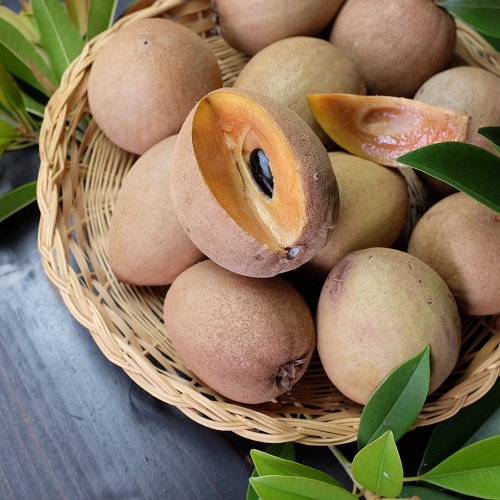Food
Benefits of kalamata olives and side effects

Table of Contents
- Discover the Shocking health benefits of kalamata olives and side effects.
- A little-known fact is that olives, especially Kalamata olives, are one of the healthiest foods in the world.
- They contain high levels of powerful polyphenols, antioxidants, and healthy fats, making the benefits of Kalamata olives truly amazing.
- Eating kalamata olives is a delicious way to increase your nutrient intake and add flavor to your favorite recipes.
-
Health Benefits of Kalamata olives
The many health benefits of kalamata olives include their ability to do the following
- • Prevent chronic diseases
• Reduce inflammation
• Lower your risk of Alzheimer’s
• Prevent cancer
• Optimize heart health
• Low blood pressure
Good levels of vitamins, minerals, and monounsaturated fats can also optimize heart health and lower blood pressure, protecting you against heart disease.
Some studies have also found that regular consumption of these olives can help control or prevent type 2 diabetes.
As mentioned, kalamata olives possess phenolic compounds, which are antioxidants that can reduce oxidative stress and reduce inflammation levels throughout the body.
However, the high level of sodium in these olives means that you should only eat them in moderation, but let’s take a closer look at the benefits of Kalamata olives:
Nutrition facts of kalamata olives
Kalamata olives are often referred to as Greek olives. Many people might think that bite-size fruits are unhealthy because they are usually very high in sodium, but they are an ideal source of vitamin C, vitamin E, vitamin A, vitamin K, B vitamins, magnesium, potassium, and phosphorus.
• Olive antioxidants: According to researchers at the Department of Pharmacological Sciences at the University of Milan in Milan, Italy, the phenols found in drupes may be the reason why Mediterranean people have a lower incidence of heart disease and some cancers. Phenolics are powerful antioxidants that protect the body from free radicals.
• Anti-inflammatory: Oleocanthal is one of the phenolic compounds in olives and has powerful anti-inflammatory abilities.
• Fiber: Six olives have half the fiber content of a full-size orange.
• Calories: Just three to five olives contain about 45 calories. It is estimated that about 80 to 90 percent of the calories in olives come from fat.
They also contain different levels of called linoleic acid, and a very small amount of alpha-linolenic acid, an omega-3 fatty acid.
• Healthy monounsaturated fat: Four tablespoons of olives contain 2.7 grams of monounsaturated fat and 0.3 grams of polyunsaturated fat.
These good, healthy fats have been found to significantly lower cholesterol, reducing the risk of heart attack or stroke.
• Gallic Acid – Gallic acid is a form of phenolic acid and it also offers antioxidant benefits. It also helps improve insulin sensitivity and has impressive antiviral properties.
In recent years, researchers from the Department of Biology, Sciences, and Research at the Islamic Azad University in Tehran, Iran, have been studying its possible benefit as an Alzheimer’s treatment.
• Hydroxytyrosol: it is a powerful polyphenol. It helps improve the vascular system and also protects the body’s LDL cholesterol from oxidation.
• Oleanolic Acid: Oleanolic acid has strong anti-tumor properties. It is also an antimicrobial and anti-inflammatory substance.
• Iron: olives are a food rich in iron. An olive provides about 2 to 3 percent of your daily dietary intake requirements. Iron increases oxygen in the blood and helps relieve anemia.
Kalamata olives vs. black olives
Kalamata olives are a type of black olive, but not all black olives are kalamatas.
• Taste: The main difference lies in the taste since nutritionally the two are quite similar.
• Size: Kalamata olives tend to be larger and taste richer and less salty
• Sodium content: Kalamata olives also have higher levels of sodium, which gives them a saltier bite.
• Color: In terms of color, the kalamata variety is dark purple.
Nutritional benefits of Kalamata olives
In terms of nutrition, kalamata olives have a moderate amount of calories (about 40 calories for every 10 olives) and low levels of protein and carbohydrates.
These olives also have a small amount of dietary fiber, about 1 gram per 10 olives, and good amounts of calcium, vitamin K, E, A, and vitamin C, as well as minerals like iron, potassium, and magnesium.
These olives are also good sources of monounsaturated fats, with almost 3 grams of these good fats in just 4 tablespoons of olives.
What are kalamata olives?
Kalamata olives are another form of black olives and are commonly grown in the Mediterranean region.
These dark purple olives are often shaken or canned in olive oil and are considered fruits; their flavor is similar to that of other olives, with a salty and salty taste, and a substantial consistency.
Kalamata olives can be high in sodium, but they are also a great source of monounsaturated fats and have certain key antioxidants that can be beneficial to your health. They can last indefinitely when kept at room temperature.
How to use kalamata olvies
These olives can be used in the daily diet, cutting them in salads, as pizza ingredients, or crushed in an olive tapenade.
Most people eat these olives whole, as long as they are chopped, or mix them in pasta sauces for a flavorful blast.
How do you buy Kalamata olives?
They are typically sold in jars and cans around the world. However, some stores sell them in bulk. In such places, they are available in barrels or large containers. In many parts of the world, the containers are known as ‘olive bars’.
Kalamata olives are usually sold with their pits intact, but can sometimes be found chopped. Remember, if you must buy pitted olives, don’t eat from the pits. They are easily removed with a small knife.
Ideally, all the olives you buy should be certified organic food. You should always avoid fruit that has been treated with often harmful pesticides.
Do they have to be carefully selected to access the benefits of Kalamata olives?
Don’t be fooled by the label if it says ‘hand picked’, many olives are labeled hand-picked, but they are not.
Instead, they are harvested using a handheld mechanical pneumatic rake, however, because the product is portable, commercial packers may label the product as selected even though it is a clear misinterpretation of manual selection.
Some olives that do not indicate that they are hand-picked, the labels can be very confusing, so it is best not to be too specific about the details.
How should Kalamata olives be stored?
After opening a can of olives, you should place it in a refrigerator-safe container and store it for no more than a week or two.
The jars can be stored directly in the refrigerator and will last a month or two after opening.
You should always check the label on an expiration date to determine if the product is safe for consumption.
Side effects of kalamata olives
Eating too much kalamata olives may increase your sodium intake.
Too much sodium in blood can lead to high blood pressure, heart disease, and stroke. It can also induce loss of calcium, some of which may be pulled from bone.
Furthermore, keep in mind that all varieties are a choking hazard for kids.
How to hit a Kalamata olive?
Kalamata olives usually have holes when purchased, it is easy to remove the hole, just use the side of the knife to press the olive floor.
This will create a crack in the pulp of the olive and the pit can be quickly and efficiently exploited from the meat.
Olives are a remarkable food, but the Kalamata variety stands out as truly excellent. It’s a tasty treat that can be sipped straight out of the can or jar if you’re looking for a healthy snack.
You can also dice them to add to salads or a pizza, purplish olives can also be used in a variety of recipes. You can also use them as a valuable addition to your meals or recipes.
Substitutes
If you want to replace kalamata olives in your recipe for whatever reason, there are many good options, including:
• black olives
• capers
• Nicoise olives or Gaeta olives
Obviously, for some recipes, replacing an olive with a different type of olive will be the best option, but capers add a similar salty bite to your dish.
Black olives will not be as heavily seasoned with vinegar, while Gaeta and Nicoise olives are slightly milder in flavor.
Food
6 Benefits of sweet orange essential oil

Table of Contents
Food
5 benefits of tangerine peel

Table of Contents
- 1. Benefits of tangerine peel for weight loss
- 2. Benefits of tangerine peel for cancer
- 3. Regulates cholesterol
- 4. Improves gastrointestinal health
- 5. It can detoxify the body
- Related
- Discover the 5 benefits of tangerine peel.
The drink is a natural and effective alternative to provide nutrients to the body and help reduce cholesterol.
Mandarin is a citrus fruit known for its bittersweet flavor and aroma, and although the pulp of this fruit is what is usually consumed, there is a not very popular use of the peel that could help to obtain many health benefits.
Tangerines are a good source of antioxidants that can prevent the formation of diseases and premature aging, so it is suggested to consume food and drinks with this fruit that provides vitamins A, C, potassium, iron, folic acid and fiber.
The infusion of tangerine peels can help to obtain the benefits of this citrus, here are 5 benefits that it could bring to the body.
1. Benefits of tangerine peel for weight loss
According to a study, tangerine peel could eliminate calories that are hidden in some foods.
Thus, in addition to the infused peel being recommended, it can also be used as a spice in some dishes, and to substitute dressings that may not be so healthy. By lowering your calorie intake, you can lose weight or control it.
2. Benefits of tangerine peel for cancer
The Cookist site points out that the high amounts of antioxidants that are present in mandarin peels help prevent the appearance of carcinogenic tumors, which could be due to the fact that the peel contains 20 times more antioxidants than the pulp of this citrus.
3. Regulates cholesterol
An article published by the American Chemical Society explains that mandarin peels could have better results compared to some drugs that have the function of regulating cholesterol in the blood.
The article also reviews and reviews some studies in which the effectiveness of the infusion of mandarin peels is verified, which is why it points out that this drink is a natural and effective alternative, it also verifies a reduction in bad cholesterol due to of the presence of flavonoids in citrus peels.
4. Improves gastrointestinal health
A study carried out by researchers from the Institute of Organic Chemistry in Bulgaria, found that mandarin peels are able to regulate gastrointestinal problems, increase satiety and improve the immune system.
These benefits are possible because the rind has good quality pectin, which is a soluble dietary fiber with beneficial health properties.
5. It can detoxify the body
According to information from the Citrus site, citrus fruits are highly alkaline fruits that can help purify the body, so the infusion of mandarin peel can perform its purifying function, this is possible thanks to the alkaline properties of this food, which are able to gradually eliminate toxins that the body does not need.
We hope the article on the 5 benefits of tangerine peel has been of help.
Trending searches….
•Health benefits of tangerine peel tea
•Tangerine peel benefits for skin
•Tangerine peel side effects
•Tangerine peel uses
•Benefits of tangerine in pregnancy
•Are tangerines good for weight loss
•Tangerine nutrition Facts and health benefits
•Are tangerines good for your heart
Food
12 Benefits of Chikoo fruit and side effects

Table of Contents
- Chikoo Tree
- How to use Chikoo fruit or sapote
- Chikoo (Sapodilla) Juice Recipes
- Health Benefits of Chikoo fruit or Sapodilla
- 1.- Add Energy
- 2.- Better metabolism
- 3.- High fiber
- 4.- Benefits of the chikoo fruit for digestion
- 5.- Benefits of the chikoo fruit for weight loss
- 6.- Relief stomach problems
- 7.- Benefits of the chikoo fruit for inflammation
- 8.- Benefits of the chikoo fruit for eyes
- 9.- Anti-Bacterial
- 10.- Increase the immune system
- 11.- Support for the well-being of the body
- 12.- Benefits of the chikoo fruit for hair
- 13. Benefits of the chikoo fruit for skin
- 14.- Antioxidant
- 15.- Benefits of the chikoo fruit for children
- Side effects of Chikoo fruit or Sapote
- Discover the 12 shocking health benefits of Chikoo fruit or sapote and side effects.
Many people around the world might not be familiar with the tree and the benefits of the chikoo fruit.
But the different way in Asia. This common fruit that grows in many countries is quite favorable.
With the small size of the fruit and the authentic taste that feels good in the mouth, chikoo is quite common to find in the traditional market.
Also, the tree is commonly grown in the backyard and generally yields an enormous amount of fruit.
-
Chikoo Tree
The Chikoo tree can be listed as an easy tree to grow in various countries. Therefore, it is common to see that the tree is grown in many places.
Mainly in a country with a tropical climate like Mexico, Thailand, Malaysia, Bangladesh, and even in Indonesia. This tree is also known and famous for the sapodilla.
For those who don’t know what the sapote tree looks like, it can usually grow up to 30 meters and the diameters can go up to 1.5 meters.
The leaves are medium green in color and also look shiny. While the fruit is brown with the flesh a little orange.
The flavor of the fruit is very sweet and malty. Usually, in a year, it can produce fruit twice. Inside the fruit, there are usually several black seeds.
How to use Chikoo fruit or sapote
There are several ways to consume chikoo fruit and feel the benefits. If you want to know more, here are some lists of how to use chikoo fruit and reap the benefits.
1.- Direct consumption
It is the easiest way to obtain the ripe fruit and consume it directly. Make sure to clean it first before peeling the skin and then consuming the meat.
2.- Make a cake
Some creative people mix meat with various ingredients and produce a cake by baking or steaming it. It can be mixed with walnuts or almonds and can also be used as a single ingredient.
3.- Infused water
The fruit is also suitable for making water in the form of an infusion. Even this might not be very common, but it has been done by several people and it can still provide good taste and benefit.
4.- Fruit salad
Cut up some chikoo meat and mix it with other fruits. Mix it with low-calorie yogurt and it can make a delicious fruit salad.
5.- Juice or milkshake
Another common way is to produce chikoo juice or even make a shake with chikoo meat. The shake is usually a combination of chocolate or vanilla ice cream. While the juice can be using a single chikoo fruit or mixing it with other ingredients.
6.- As the syrup
Some people with certain medical conditions make chikoo fruit as ingredients for chikoo syrup. Hence, it is also capable of producing delicious syrup as well.
Chikoo (Sapodilla) Juice Recipes
For those interested in making chikoo juice, there are several recipes to try. Below are the details of this.
• Recipe 1
Mix in the chikoo fruit choosing the ripe meat. Avoid using green meat otherwise, the taste is simple. Mix it with a little lemon extract to give it various bitter flavors and avoid an overly sweet taste.
• Recipe 2
Mix the chikoo fruit with other fruits like banana, apple, avocado, or pear. It will provoke a different flavor when combined with different fruits. Therefore, to achieve a different feeling of consuming chikoo fruit, always combine with different fruits every day.
• Recipe 3
Mix the chikoo fruit with milk and sugar. This can produce a feeling of fullness. So it can be one of the healthy afternoon snacks.
Health Benefits of Chikoo fruit or Sapodilla
By looking at the nutrient content of the fruit, it can be concluded that chikoo can bring many benefits. Below are some top health benefits of the chikoo fruit points list.
1.- Add Energy
Chikoo fruit is high in calories and sugar. Therefore, it can help provide more energy to support daily activities.
In addition, it will help to avoid hunger and it is best to maintain the energy level if it is consumed for breakfast.
2.- Better metabolism
The calories within the chikoo fruit will help to produce a better metabolism system. It will manage the body to increase the metabolic rate and lead to the optimal conversion of food into necessary energy.
That is why it also stimulates oxygen distribution throughout the body and leads to the optimization of the oxygen level in the brain.
3.- High fiber
Chikoo fruit also contains a large amount of fiber. Therefore, it can help to be a natural source of fiber and manage a better digestive system.
When the digestive system works well, it means that the intestine works quite well as well. Therefore, it can help avoid digestive problems.
4.- Benefits of the chikoo fruit for digestion
An optimal digestive will usually lead to rapid digestion.
Regulates bowel movements and creates a rapid digest in the stomach. That is why consuming chikoo will stimulate a better bowel movement.
5.- Benefits of the chikoo fruit for weight loss
When the body’s metabolism and digestive system work fairly well, the body can absorb more nutrients from food. This will cause the body to absorb various necessary vitamins and minerals.
This is one of the mechanisms of how the body will avoid fat gain and naturally reduce weight slowly. Therefore, chikoo is also one of the good alternatives to promote weight loss.
6.- Relief stomach problems
Other unexpected health benefits and uses of chikoo (sapodilla) fruit and juice are to ease any stomach problems.
It includes stomach pain and also helps relieve constipation as well. Where it is common to occur when the stomach contains too much gas.
By consuming chikoo, you will help to absorb gas and make your stomach feel better, and avoid heartburn.
7.- Benefits of the chikoo fruit for inflammation
The nutrient within the chikoo fruit benefits can prevent inflammation as well.
Especially the tannin content within the fruit that works to reduce the inflamed swollen area and help soothe the pain. Also, it can reduce redness and bring fast recovery.
8.- Benefits of the chikoo fruit for eyes
Chikoo fruit also contains vitamin A which will support eye health. You can achieve healthy vision and prevent new eye infections. Therefore, consuming chikoo can maintain vision for a longer period.
9.- Anti-Bacterial
Not only does it benefit as an anti-inflammatory, but the fruit is also good at acting as an antibacterial agent.
Therefore, it will help to avoid new bacterial infections in the body. Also, this can help the body avoid other diseases as well.
Since bacteria can cause some infections like stomach infection, brain infection, and many more.
10.- Increase the immune system
The vitamin C within this fruit will bring better immunity. It will help to stimulate the immune system naturally. Thus, it will lead to a better and stronger body to avoid more bacterial or viral infections.
11.- Support for the well-being of the body
When immunity increases, the health of the body will increase accordingly. In addition, it can lead to better body well-being that keeps you away from any disease. You will avoid any possibility of illness and maintain a strong and healthy body.
12.- Benefits of the chikoo fruit for hair
Not many people would understand that chikoo is also good for healthy hair. This will lead to a healthy scalp surface and prevent further problems like hair loss and dandruff.
This is the reason why many herbal shampoos also use the benefits of the chikoo fruit as ingredients to make the most of the extract and produce better hair shine and healthier hair conditions.
13. Benefits of the chikoo fruit for skin
Since the fruit is capable of acting as an anti-inflammatory, it is good to treat any skin inflammation such as eczema.
Also, it will help to create smoother skin and prevent any appearance of acne in the face area of the skin. Hence, consuming the fruit will lead to healthy skin.
14.- Antioxidant
Chikoo fruit is also a good antioxidant. This will benefit the body to avoid any free radical effects that usually come from pollutants or ultraviolet light.
Therefore, it is a good way to naturally avoid the signs of early aging and avoid the symptoms of cancer.
15.- Benefits of the chikoo fruit for children
It is quite surprising that the fruit is also good for children. Especially to add bone mass and help children grow.
Also, it will lead to a healthy body and prevent various diseases for children. By increasing the immune system of children, it can lead to a better child to grow and develop.
Side effects of Chikoo fruit or Sapote
Chikoo or Sapote provides many benefits, but on the other hand, it gives several side effects as well.
Even these side effects are not happening to everyone, still, it is important to be careful.
Therefore, it is best to see the following precautions if this is your first time trying chikoo fruit.
- Watch out for any itchy, rash, or red skin reaction. This means that your body is allergic to the fruit.
Therefore, it is better to avoid consuming this fruit again in the future.
- This fruit tastes very sweet. Therefore, people with symptoms of diabetes should avoid consuming too much fruit. Otherwise, it can easily spike your blood sugar level and lead to the worst diabetic diseases.
- The sweet taste can also cause a sore throat. Therefore, keep monitoring the amount of fruit you consume every day to prevent a sore throat from occurring.
- Clean the fruit well before consuming it to avoid the effect of tannin and latex acid on your skin. Otherwise, it can lead to mouth irritation and ulcer.
- Excess consumption can also cause stomach problems, as the fruit is rich in fiber. Therefore, always eat in the right portions and avoid consuming too much fruit.
Those are all the health benefits of chikoo (sapote) fruit. Not only is it easy to find, apparently the fruit has many health advantages.
Therefore, one of these exotic fruits is worth consuming many times. Also, don’t worry about having a hard time getting the fruit.
If you live in a tropical country, it will easily grow in the backyard. Just make sure you understand the way to grow the plant first.
Then when the harvest season comes, you can get the benefit every day.
Related Searches…..
Sapodilla benefits and side effects
Chiku fruit in English
How many chikoo in a day
Can we eat chikoo at night
Sapodilla leaf health benefits
-

 Food1 year ago
Food1 year ago10 + Benefits of carrot juice and side effects
-

 Benefits4 months ago
Benefits4 months agoThe Benefits of Joining Gym Lumolog – Improve Your Fitness & Health
-

 Health1 year ago
Health1 year ago50 Super Healthy (And Very Often Cheap) Foods
-

 Health1 year ago
Health1 year ago5 Shocking health benefits of kinkeliba and side effects
-

 Food1 year ago
Food1 year ago8 shocking benefits of leek juice and side effects
-

 Health1 year ago
Health1 year agoBenefits of guava leaves Sensually
-

 Weight Loss1 year ago
Weight Loss1 year agoChaz Bono weight loss secret
-

 Health1 year ago
Health1 year ago15 Benefits of lipton tea and side effects












